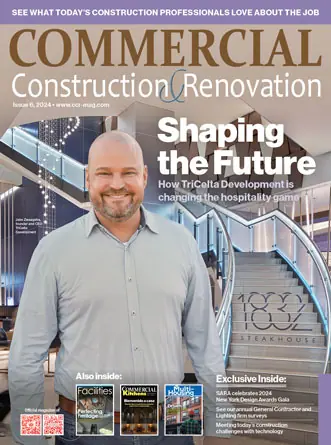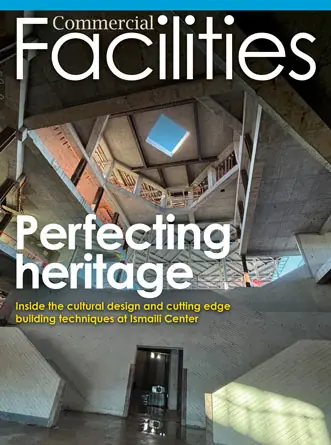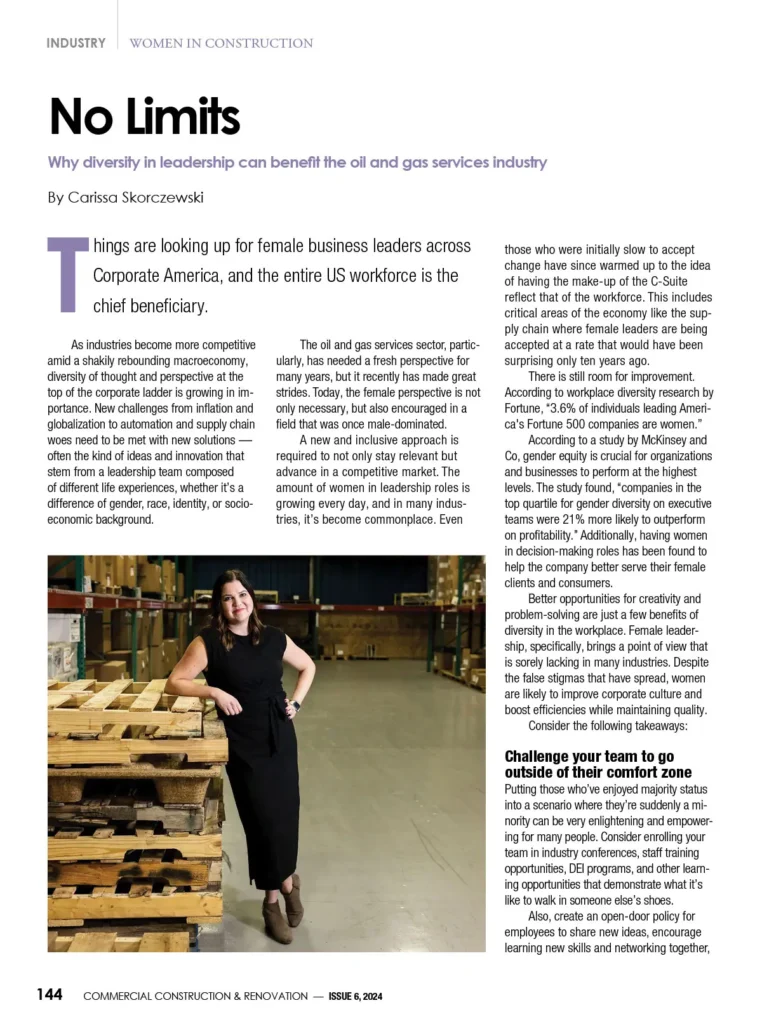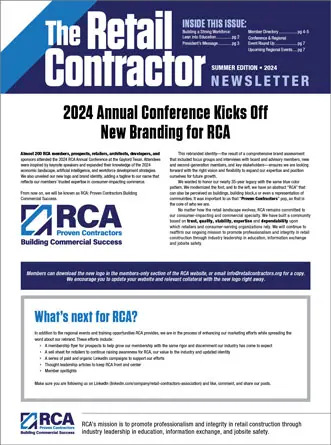
It is only fitting that the U.S. Olympic Museum, showcasing the innumerable accomplishments of American athletes at the Games and honoring the history of its national team, embodies prestige, spirit, and athleticism. Opened on July 30, 2020, the museum is poised to provide such a monument to American Olympic athletes – “a timeless institution that reflects Team USA pride and helps visitors experience the thrill of the Games.”[1]
The museum – located on 1.7 acres of land near Pikes Peak, where many Olympic and Paralympic dreams begin – is mere blocks away from the U.S. Olympic Committee headquarters. The museum honors the U.S. Olympic and Paralympic spirit by showcasing an evolving collection of athletic memorabilia from athletes, promising a new experience each visit as future champions chase and realize their dreams.
Tasked with constructing the museum’s exterior, MG McGrath, Inc. sought to create a skin that matched architecture firm Diller, Scofidio + Renfro’s vision of a building structure and overall exterior visual effect that encapsulated the passion, dedication, and endurance of an Olympic athlete.
Only a modern architectural marvel could house such an impressive collection and embody such a competitive spirit, so the project aimed to deliver an exterior that would capture the movement of an elite athlete. To achieve this, a system of custom metal panels with integrated gutters was chosen to wrap the double-curved geometry of the façade.
Stainless steel was considered as a material option for the project, but Lorin anodized aluminum panels ultimately won over for their durability, low cost, malleability, environmentally friendly qualities, and color and finish.
Lorin Industries, Inc., the global industry leader in the innovation and production of coil anodized aluminum, pioneered the cost-effective coil anodizing process, which protects the aluminum while also improving its aesthetic properties and durability. Anodized aluminum is up to two-thirds lighter than other metals, such as stainless steel. Less weight means less material is required for any given application, so the supporting structure no longer needs to be as expensive to hold up the anodized aluminum. For a project funded by contributions and taxpayers, maintaining a low cost is essential. Anodized aluminum was more economical than the stainless steel option, and its resilience ensures the panels will last long into future Olympic competitions.
Coil anodizing delivers consistent quality; handling and installation is made simple by the light and workable material. Even with its light weight, coil anodized aluminum has an exterior surface hardness second only to diamond and is therefore unmatched in abrasion resistance and durability.
Additionally, for a building sure to host countless visitors, ease of maintenance is vital to ensuring the longevity and aesthetics of the structure. Lorin’s anodized stainless finish is created by an electro-chemical process that builds an anodic layer from the aluminum, bonding it to the surface at the molecular level.
While aluminum creates its own protective oxide layer naturally, the anodizing process creates an anodic layer 2,500-25,000 times thicker than that of the naturally occurring oxide layer. Therefore, it protects aluminum from oxidation, scratching, and other hazards far better than natural oxidizing, and it requires very minimal upkeep while resisting scratches and finger prints.
Continuous coil anodizing also delivers superior aesthetics by producing a clear, translucent oxide layer that enhances the metal’s natural beauty. Its three-dimensional crystalline structure reflects and refracts light to transform the building into a living, moving structure.
Lorin anodized aluminum covers exterior walls, low-slope walls and roof, and the interior vestibule ceiling. The aluminum skin wrapped around the building creates the illusion of a body poised to pounce like a discus thrower, captured moments before releasing the disk. To honor the long history of Olympic sport, the skin also creates a sense of perpetual motion.
Color and finish were very important during the selection process, and the Lorin material delivers a high-quality, uniform, and matte brushed finish. The clear anodized finish on the panels that was chosen for the museum exterior ensures that the building skin retains its characteristic metallic quality reminiscent of Olympic medals. Such a finish provides directionality to the panel surface, aiding the illusion of a body charged with potential energy.
8,500 panels were combined to create an exceptional finish, and every panel on the project is unique. To create the panels and manage their individual geometries, MG McGrath using 3D model-based fabrication. This requires tight quality control and management of fabrication processes, when it comes to tooling and tracking the panels. The versatility of the Lorin material – combined with MG McGrath’s ability to shape these panels into their unique geometries – makes the necessary 3-D panel shapes possible. The anodized aluminum is relatively malleable, making it a superior choice for easy shaping.
Situated in a mountainous region, the museum prioritizes environmentally friendly materials. The anodized aluminum panels are 100% recyclable helping to meet the project’s LEED requirements.
Lorin was instrumental in the initial material selection process by providing various surfacing options as well as a range of finishes for the panels. Once the material was selected, installing the aluminum panels was a collaborative effort.
During installation, Lorin supplied expertise on the behavior of anodized material on the building from different viewing angles as well as data on the color consistency of the coils that were produced for the museum. Additionally, Lorin ensured that the strict installation and fabrication tolerances of such a material were maintained during application to guarantee the highest quality surface.
At the U.S. Olympic Museum, aesthetics and functionality combine to create a state-of-the-art architectural marvel that honors past, present, and future American athletes in their pursuit for Olympic and Paralympic glory at the Games.
By Phil Pearce, Lorin Industries, Inc.
#lorinindustriesinc
[1] https://www.usolympicmuseum.org









 The 2024 virtual Men’s Round Table will be held Q4, 2024, date TBD.
The 2024 virtual Men’s Round Table will be held Q4, 2024, date TBD.












